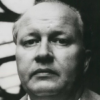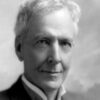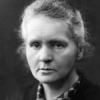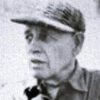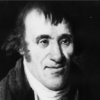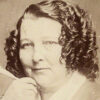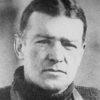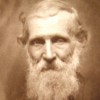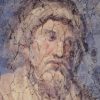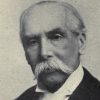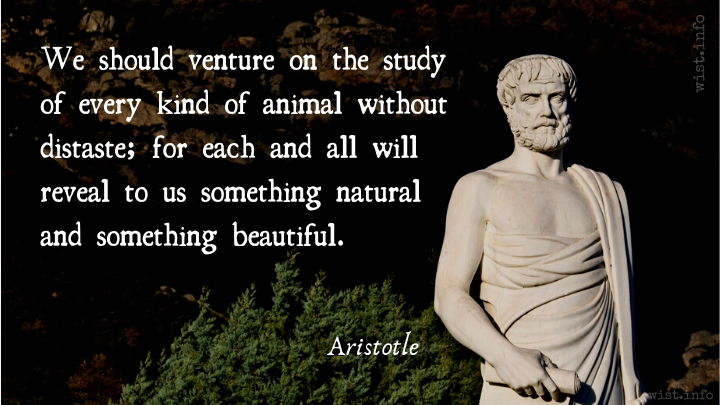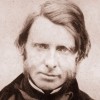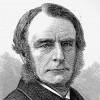The charge is often made against etiquette that it is artificial. Yes, indeed, it is. Civilization is artificial. When people extoll the virtues of naturalness, honesty, informality, intimacy, and creativity — watch out. Honesty has come to mean the privilege of insulting you to your face without expecting redress, and creativity that it is wrong to interfere with a child who is destroying your possessions. It is apparently natural behavior to treat the sick, the disabled, and the bereaved with curiosity and distaste, but it is also highly uncivilized.
Judith Martin (b. 1938) American author, journalist, etiquette expert [a.k.a. Miss Manners]
Common Courtesy, “In the Quest for Equality, Civilization Itself Is Maligned” (1985)
(Source)
Originally published in The New Republic in 1984.
Quotations about:
nature
Note not all quotations have been tagged, so Search may find additional quotes on this topic.
By day the bat is cousin to the mouse.
He likes the attic of an aging house.
His fingers make a hat about his head.
His pulse beat is so slow we think him dead.
He loops in crazy figures half the night
Among the trees that face the corner light.
But when he brushes up against a screen,
We are afraid of what our eyes have seen:
For something is amiss or out of place
When mice with wings can wear a human face.
Every child should have mud pies, grasshoppers, water-bugs, tadpoles, frogs, mud-turtles, elderberries, wild strawberries, acorns, chestnuts, trees to climb, brooks to wade in, water-lilies, woodchucks, bats, bees, butterflies, various animals to pet, hay-fields, pine-cones, rocks to roll, sand, snakes, huckleberries and hornets and any child who has been deprived of these has been deprived of the best part of his education.
Luther Burbank (1849-1926) American horticulturist
The Training of the Human Plant, ch. 10 “Character” (1907)
(Source)
A person who lacks the means, within himself, to live a good and happy life will find any period of his existence wearisome. But rely for life’s blessings on your own resources, and you will not take a gloomy view of any of the inevitable consequences of nature’s laws. Everyone hopes to attain an advanced age; yet when it comes they all complain! So foolishly inconsistent and perverse can people be.
[Quibus enim nihil est in ipsis opis ad bene beateque vivendum, eis omnis aetas gravis est; qui autem omnia bona a se ipsi petunt, eis nihil malum potest videri quod naturae necessitas adferat. Quo in genere est in primis senectus, quam ut adipiscantur omnes optant, eandem accusant adeptam; tanta est stultitiae inconstantia atque perversitas.]
Marcus Tullius Cicero (106-43 BC) Roman orator, statesman, philosopher
De Senectute [Cato Maior; On Old Age], ch. 2 / sec. 4 (2.4) [Cato] (44 BC) [tr. Grant (1960, 1971 ed.)]
(Source)
(Source (Latin)). Alternate translations:
For eche of thies ages which men name Childhode, adolescence, yongth, virilite, manhode & olde age semyn to be hevy & noxous to men the which in them silf have nothyng that may help & socoure them to lyve goodly & blessidly as bee, the which excercisen sciences & vertues & good werkis, but as to suche men which sechyn & fyndyn in themsilf alle the goods & thyngis which belongyn wele & blessidly for to lyve, ther is nothyng that comyth to them in age by the defaute of nature that may seme unto them evyll nor noxous. It is certayne that olde age is suche that it serchith & fyndyth in it self all the goodnesses whch longen to live wel & blyssidly, and yet is olde age such that alle men desyre to come untyll hit, And never the lesse the mutablenes & evyl dysposicion of men it is so grete in oure dayes that they blamyn olde age whan they be come therto by cause that then they may not use delectacions.
[tr. Worcester/Worcester/Scrope (1481)]
For they that have no power, pith of wit, help, way nor virtue in themselves to conduct and bring them to a good and blessed life, unto such as these be, all their age is cumbersome and unpleasant. But unto such as lead their lives virtuously, measuring all their actions by the square of reason, and have their minds with all good gifts of grace beautified and garnished, there is nothing thought nor deemed evil that cometh by necessity of nature. Of the which sort old age is principally to be considered, unto which all men wish to arrive, and yet when they have their desire, they accuse it as painful, sickly, unpleasant and tedious, such is the brainless unconstancy, foolish sottage, and perverse overthwartness of wayward people.
[tr. Newton (1569)]
For that age is only grievous to those that have no taste of wisdome and learning in themselves to make them live happily: but to them which see all perfection and consolation from their own experience, nothing can seem heavy which the necessity of nature bringeth: of which sort old age is chief, which all desire to obtain, and blame being obtained; such is their unconstancy, foolishnesse and perversity.
[tr. Austin (1648)]
For to those who have nothing within themselves capable of making Life happy, and satisfactory, no wonder if every Stage of it should prove irksome, and vexatious: but, to those who derive all their satisfaction from an easy mind, nothing can seem grievous and tormenting, that proceeds from the irreversible Laws of Nature; which certainly is the case of Old Age,, whereunto though 'tis the earnest desire of all men to arrive, yet such is their unaccountable folly, and perverseness, that they are never more uneasy than when they have arrived at it.
[tr. Hemming (1716)]
All Ages are grievous to those who have not in themselves the Means of living Holy and Happy; but those who expect all Happiness from their own Virtues, don't look up on the Decay of Nature as a Hardship, whereof Old Age is the chiefest, and which all desire to attain to; but is no sooner tasted than declaim'd against. Such are the Effects of Inconstancy, Folly, and the Want of Wisdom.
[tr. J. D. (1744)]
For know this, that those who have no Aid or Support within themselves, to render their Lives easy, will find every State irksome: While such as are convinced, they must owe their Happiness to themselves, and that if they cannot find it in their own Breasts, they will never meet with it from abroad; will never consider any thing as an Evil, that is but a necessary Effect of the established Order of Nature; which Old Age most undoubtedly is. 'Tis certainly strange, that while all Men hope they may live to attain it, any should find Fault with it, when it comes their Share. Yet such is the Levity, Folly, and Perverseness of Mankind, that we see there is nothing more common.
[tr. Logan (1744)]
Those indeed who have no internal resource of happiness, will find themselves uneasy in every stage of human life: but to him who is accustomed to derive all his felicity from within himself, no state will appear as a real evil into which he is conducted by the common and regular course of nature. Now this is peculiarly the case with respect to old age : yet such is the inconsistency of human folly, that the very period which at a distance is every man's warmest wish to attain, no sooner arrives than it is equally the object of his lamentations.
[tr. Melmoth (1773)]
For to those that have nought of resource in themselves for living well and happily, every stage of life is burthensome; while to those that seek all their goods from themselves, nothing can seem an evil, which the law of Nature may bring them. In which class foremost stands old age, which all desire to attain, but arraign the same when attained; so great is the inconsistency and perverseness of folly.
[Cornish Bros. ed. (1847)]
For to those who have no resource in themselves for living well and happily, every age is burdensome; but to those who seek all good things from themselves, nothing can appear evil which the necessity of nature entails; in which class particularly is old age, which all men wish to attain, and yet they complain of it when they have attained it; so great is the inconsistency and waywardness of folly.
[tr. Edmonds (1874)]
For those who have in themselves no resources for a good and happy life, every period of life is burdensome; but to those who seek all goods from within, nothing which comes in the course of nature can seem evil. Under this head a place especially belongs to old age, which all desire to attain, yet find fault with it when they have reached it. Such is the inconsistency and perverseness of human folly.
[tr. Peabody (1884)]
But those who look for all happiness from within can never think anything bad which nature makes inevitable. In that category before anything else comes old age, to which all wish to attain, and at which all grumble when attained. Such is Folly's inconsistency and unreasonableness!
[tr. Shuckburgh (1895)]
Of course
To those who've no resources in themselves
For a good and happy life, why, every age
Is hard to bear: but those who have within
All that is needful for a life well-spent,
Can never find misfortune in the lot
That nature's laws impose. And one such lot
Is that old age must come to each and all,
Old age so fondly hoped for, when it comes,
So Oft found to be irksome. Such, alas!
Is Folly's want of reason and resolve.
[tr. Allison (1916)]
For to those who have not the means within themselves of a virtuous and happy life every age is burdensome; and, on the other hand, to those who seek all good from themselves nothing can seem evil that the laws of nature inevitably impose. To this class old age especially belongs, which all men wish to attain and yet reproach when attained; such is the inconsistency and perversity of Folly!
[tr. Falconer (1923)]
People, you see, who have no inner resources for living the good and happy life, find every age a burden. But men who seek all good from within themselves are simply unable to view as evil anything that comes about through nature’s law. Now old age, as much as anything else in this world, is such a thing. All men hope and pray to attain it; once they have attained it, they start finding fault with it.
[tr. Copley (1967)]
Some people just do not possess the optimism that would allow them to live contentedly under any circumstances: for them every stage of life is a burden. But if only they expected nothing but good for themselves, nothing that the natural passage of time brought them could seem bad. This is especially true of old age. Everybody wants to live for a long time, but when they have attained their goal, they grumble. It makes no sense -- but that’s what life is: perverse and inconsistent.
[tr. Cobbold (2012)]
Someone who doesn't have much in the way of inner resources will find all stages of life irksome, but someone whose character is in order will accept what nature brings and not complain about something perfectly natural, calling it evil. There is much nonsense bandied about old age, something which everyone wishes to reach, but which most complain about once they get there. That seems more than slightly inconsistent and perverse, doesn't it?
[tr. Gerberding (2014)]
They find every age oppressive, of course,
Who in their inner selves have no resource
To live an easy life in happiness,
But they who in themselves only find
Their own contentment and peace of mind
See no harm in nature’s due process
Whose termination inevitably
May lead to that state of senility
To which they keenly lay claim,
But once attained rather foolishly,
With malice and incongruity,
Promptly find reasons to blame.
[tr. Bozzi (2015)]
Those who lack within themselves the means for living a blessed and happy life will find any age painful. But for those who seek good things within themselves, nothing imposed on them by nature will seem troublesome. Growing older is a prime example of this. Everyone hopes to reach old age, but when it comes, most of us complain about it. People can be so foolish and inconsistent.
[tr. Freeman (2016)]
Every age is burdensome to those who have no means of living well and happily. But to those who seek all good from themselves, nothing which the necessity of nature offers can appear bad. Old age is a prime example of this sort of thing -- everyone wishes to attain it, but they always complain about it once it is attained. Such is the inconstancy and perversity of stupidity.
[tr. Robinson [@sentantiq] (2017)]
LEAR: I pardon that man’s life. What was thy cause? —
Adultery? Thou shalt not die. Die for adultery? No.
The wren goes to ‘t, and the small gilded fly does
lecher in my sight. Let copulation thrive ….William Shakespeare (1564-1616) English dramatist and poet
King Lear, Act 4, sc. 6, l. 129ff (4.6.129-132) (1606)
(Source)
All my life through, the new sights of Nature made me rejoice like a child.
Marie Curie (1867-1934) Polish-French physicist and chemist [b. Maria Salomea Skłodowska]
Pierre Curie, “Autobiographical Notes: Marie Curie,” ch. 1 (1923) [tr. Kellogg/Kellogg]
(Source)
Child, your first birthday presents will come from nature’s wild —
Small presents: earth will shower you with romping ivy, foxgloves,
Bouquets of gipsy lilies and sweetly-smiling acanthus.[At tibi prima, puer, nullo munuscula cultu
errantis hederas passim cum baccare tellus
20mixtaque ridenti colocasia fundet acantho.]Virgil (70-19 BC) Roman poet [b. Publius Vergilius Maro; also Vergil]
Eclogues [Eclogae, Bucolics, Pastorals], No. 4 “Pollio,” l. 18ff (4.18-20) (42-38 BC) [tr. Day Lewis (1963)]
(Source)
Celebrating the birth of Saloninus, a boy born in the consulship of his father and Virgil's patron C. Asinius Pollio. Or, possibly, writing of Marcellus, son of Augustus. Or maybe just a lot of veiled references to Augustus himself. Or, say some, divine prophecy of the future Jesus Christ. Lots of theories; some summaries here and here.
(Source (Latin)). Alternate translations:
Which shall to thee (sweet childe) undrest, bring forth,
Berries, wilde Ivie, and shall pay first fruits
Of mixt Acanthus, with Egyptian roots.
[tr. Ogilby (1649)]
Unbidden Earth shall wreathing Ivy bring,
And fragrant Herbs (the promises of Spring)
As her first Off'rings to her Infant King.
[tr. Dryden (1709), l. 22ff]
Gladly to thee its natal gifts the field,
Till'd by no human hand, bright Boy, shall yield;
The baccar's stem with curling ivy twine.
And colocasia and acanthus join.
[tr. Wrangham (1830)]
Meanwhile the earth, O boy, as her first offerings, shall pour thee forth every where, without culture, creeping ivy with lady's glove, and Egyptian beans with smiling acanthus intermixed.
[tr. Davidson (1854)]
On thee, child, everywhere shall earth, untilled,
Show'r, her first baby-offerings, vagrant stems
Of ivy, foxglove, and gay briar, and bean.
[tr. Calverley (c. 1871)]
Yes, for you, sweet boy, shall the earth untilled pour forth far and wide a child's simple gifts, the creeping ivy twined with foxglove, and Egyptian beans blended with the bright smile of acanthus.
[tr. Wilkins (1873)]
To deck thy cradle earth spontaneous pours
The spikenard's perfume and the wealth of flowers,
Green ivy creeps around with graceful thread,
And bright acanthus smiles upon the bed.
[tr. King (1882), l. 282ff]
Now, fairest boy, will the new-teeming earth
No culture wait, but pour to make thee mirth,
As toys of off'ring she can soonest bear,
Wild nard and errant ivy everywhere,
And with th' Egyptian lily twined in play,
Laughing acanthus.
[tr. Palmer (1883)]
For thee, O boy,
first shall the earth, untilled, pour freely forth
her childish gifts, the gadding ivy-spray
with foxglove and Egyptian bean-flower mixed,
and laughing-eyed acanthus.
[tr. Greenough (1895)]
Meanwhile the earth, O boy, as her first offerings, shall pour forth for you everywhere, without culture, creeping ivy with lady’s glove, and Egyptian beans with smiling acanthus intermixed.
[tr. Bryce (1897)]
But on thee, O boy, untilled shall Earth first pour childish gifts, wandering ivy-tendrils and foxglove, and colocasia mingled with the laughing acanthus.
[tr. Mackail (1899)]
To him shall bring
Uncultured earth her first small offerings,
Creeping wild ivy, arums, foxgloves too,
Smiling acanthus with bright polished leaf.
[tr. Mackail/Cardew, verse (1908)]
For tributes at thy birth, O blessed babe.
The untilled earth with wandering ivies wild
Shall mingle spikenard, and from bounteous breast
Pour forth her lilies and Egyptian balm.
[tr. Williams (1915)]
But for you, child, the earth untilled will pour forth its first pretty gifts, gadding ivy with foxglove everywhere, and the Egyptian bean blended with the laughing briar; unbidden it will pour forth for you a cradle of smiling flowers.
[tr. Fairclough (Loeb) (1916)]
Free-roaming ivy, foxgloves in every dell, and smiling acanthus mingled with Egyptian lilies — these, little one, are the first modest gifts that earth, unprompted by the hoe, will lavish on you.
[tr. Rieu (1949)]
But these, dear boy, are the first pretty gifts in plenty
Our Earth from effortless fields shall bring you: ivy
With foxglove wandering hither and thither, commingled
With lotus and laughing-eyed acanthus.
[tr. Johnson (1960)]
Dear child, there will be new little gifts for you,
Springtime valerian, and trailing ivy,
Egyptian beans, and smiling acanthus, all
poured out profusely from the untilled earth.
[tr. Ferry (1999)]
And for you, boy, the uncultivated earth will pour out
her first little gifts, straggling ivy and cyclamen everywhere
and the bean flower with the smiling acanthus.
[tr. Kline (2001)]
And for you, little boy, the uncultivated earth will scatter its first small gifts, wandering ivy and cyclamens everywhere, beans mixed with laughing acanthus.
[tr. @sentantiq (2015)]
Nature never said to me: Do not be poor; still less did she say: Be rich; her cry to me was always: Be independent.
[La Nature ne m’a point dit: ne sois point pauvre; encore moins: sois riche; mais elle me crie: sois indépendant.]
Nicolas Chamfort (1741-1794) French writer, epigrammist (b. Nicolas-Sébastien Roch)
Products of Perfected Civilization [Produits de la Civilisation Perfectionée], Part 1 “Maxims and Thoughts [Maximes et Pensées],” ch. 4, ¶ 281 (1795) [tr. Mathers (1926)]
(Source)
(Source (French)). Alternate translations:
Nature has not said to me: Be not poor; still less: Be rich. But she cries out to me: Be independent.
[tr. Hutchinson (1902)]
Nature did not say to me, “Do not be poor”; still less, “Be rich”; but she cried out to me, “Be independent.”
[tr. Merwin (1969)]
Nature did not tell me, "Do not be poor"; still less did it say "Be rich"; but it does cry to me: "Be independent."
[tr. Pearson (1973)]
Nature never urged me, "Be not poor," much less, "Be rich." Instead, she shouts: "Be independent."
[tr. Dusinberre (1992)]
Nature didn't tell me, "Don't be poor!"; and certainly didn't say: "Get rich!"; but she did shout: "Always be independent!"
[tr. Parmée (2003), ¶174]
Nature didn't say to me "Never be poor."; still less "Be rich."; but it cried "Be independant."
[tr. Sinicalchi]
Blessed is he who has succeeded in learning the laws of nature’s working, has cast beneath his feet all fear and fate’s implacable decree, and the howl of insatiable Death.
[Felix, qui potuit rerum cognoscere causas,
atque metus omnis et inexorabile fatum
subiecit pedibus strepitumque Acherontis avari.]Virgil (70-19 BC) Roman poet [b. Publius Vergilius Maro; also Vergil]
Georgics [Georgica], Book 2, l. 490ff (2.490-492) (29 BC) [tr. Fairclough (Loeb) (1916)]
(Source)
(Source (Latin)). Alternate translations:
Happie is he that hidden causes knowes,
And bold all shapes of danger dares oppose:
Trampling beneath his feet the cruell Fates,
Whom Death, nor swallowing Acheron amates.
[tr. Ogilby (1649)]
Happy the Man, who, studying Nature's Laws,
Thro' known Effects can trace the secret Cause.
His Mind possessing, in a quiet state,
Fearless of Fortune, and resign'd to Fate.
[tr. Dryden (1709), l. 698-701]
Happy the Man, whose penetrating mind
Of things the latent causes first could find,
He, who all terrors, ruthless Fate could quell,
And the dire din of all-devouring Hell!
[tr. Nevile (1767), l. 549-552]
How blest the sage! whose soul can pierce each cause
Of changeful Nature, and her wondrous laws:
Who tramples fear beneath his foot, and braves
Fate, and stern death, and hell's resounding waves.
[tr. Sotheby (1800)]
Happy is he who has been able to trace out the causes of things, and who has cast beneath his feet all fears, and inexorable Destiny, and the noise of devouring Acheron!
[tr. Davidson (1854)]
Thrice blest the man whom mighty genius brings
To know the cause and origin of things:
Beneath his feet lie destiny and dread;
He walks the roaring waters of the dead.
[tr. Blackmore (1871)]
Happy the man who has won the knowledge of the moving springs of nature, and so trmapled under food all fears, and the remorseless doom of death, and the road of Acheron, yawning for prey!
[tr. Wilkins (1873)]
Happy, who had the skill to understand
Nature's hid causes, and beneath his feet
All terrors cast, and death's relentless doom,
And the loud roar of greedy Acheron.
[tr. Rhoades (1881)]
Happy the man who knows the secret cause,
How nature works, and reads creation’s laws,
Whose soul to fortune can superior rise,
And death, dark minister of fate, despise.
[tr. King (1882), ll. 498-501]
Happy is he who has been able to trace out the causes of things, and who has trodden under foot all idle fears, and inexorable Destiny, and the roar of devouring Acheron!
[tr. Bryce (1897)]
Happy he who hath availed to know the causes of things, and hath laid all fears and immitigable Fate and the roar of hungry Acheron under his feet.
[tr. Mackail (1899)]
Oh happy, whose heart hath attained Creation's secret to know,
Who hath trampled all haunting fears underfoot, nor dreadeth the blow
Of Fate the relentless, the roar of insatiate Acheron's flow!
[tr. Way (1912)]
Blest was that man whose vision could explore
The world's prime causes, conquering for man
His horde of fears, his certain doom of death
Inexorable, and the menace loud
Of hungry Acheron!
[tr. Williams (1915)]
Lucky is he who can learn the roots of the universe,
Has mastered all his fears and fate's intransigence
And the hungry clamour of hell.
[tr. Day-Lewis (1940)]
Blessed is he who masters nature’s laws,
Tramples on fear and unrelenting fate,
On greedy, roaring Acheron.
[tr. Bovie (1956)]
Happy the man who has been able to learn the causes of things and has trampled beneath his feet all fears, inexorable fate, and the howl of greedy Acheron.
[tr. Miles (1980)]
Blessed is he whose mind had power to probe
The causes of things and trample underfoot
All terrors and inexorable fate
And the clamour of devouring Acheron.
[tr. Wilkinson (1982)]
He who’s been able to learn the causes of things is happy,
and has set all fear, and unrelenting fate, and the noise
of greedy Acheron, under his feet.
[tr. Kline (2001)]
Blessed, he who understands the workings of nature
and tramples all fear and relentless fate and the bone-
shaking clatter of greedy Death beneath his feet.
[tr. Lembke (2004)]
O happy he who can fathom the causes of thing,
who's thrown all fear and dogged Fate
beneath his feet, and the roaring of ravenous Acheron.
[tr. Johnson (2009)]
That man is blessed who has learned the causes of things,
And therefore under his feet subjugates fear
And the decrees of unrelenting fate
And the noise of Acheron's insatiable waters.
[tr. Ferry (2015)]
I luv mi phailings. It iz theze that make me pheel that i have that tutch ov natur in me that makes me brother tew every man living.
[I love my failings. It is these that make me feel that I have that touch of nature in me that makes me brother to every man living.]
Josh Billings (1818-1885) American humorist, aphorist [pseud. of Henry Wheeler Shaw]
Everybody’s Friend, Or; Josh Billing’s Encyclopedia and Proverbial Philosophy of Wit and Humor, ch. 131 “Affurisms: Plum Pits (1)” (1874)
(Source)
Make me true lover of fair field and farm,
Of streams in dewy vales, of rivers broad
And lonely forests, far from pomp and fame.[Rura mihi et rigui placeant in vallibus amnes,
Flumina amem sylvasque inglorius.]Virgil (70-19 BC) Roman poet [b. Publius Vergilius Maro; also Vergil]
Georgics [Georgica], Book 2, l. 485ff (2.485) (29 BC) [tr. Williams (1915)]
(Source)
Praying to his Muse to find joy in a bucolic setting, if fear turns him back from more exotic realms of nature.
(Source (Latin)). Alternate translations:
Then I'le delight in vales, nere pleasant floods,
And unrenown'd, haunt rivers, hils, and woods.
[tr. Ogilby (1649)]
My next Desire is, void of Care and Strife,
To lead a soft, secure, inglorious Life.
A Country Cottage near a Crystal Flood,
A winding Vally, and a lofty Wood.
[tr. Dryden (1709), l. 687ff]
May rural scenes, thro' meads rills sparkling please,
And woods, and rivers, in inglorious ease.
[tr. Nevile (1767), l. 543ff]
Oh may I yet, by fame forgotten, dwell
By gushing fount, wild wood, and shadowy dell!
[tr. Sotheby (1800)]
Let fields and streams gliding in the valleys be my delight; inglorious may I court the rivers and woods.
[tr. Davidson (1854)]
At least permit me to indulge my dream
Of meads, and valleys, and the mazy stream:
Be woods and waves my unambitious love.
[tr. Blackmore (1871), l. 578ff]
May the country and the rills that water the vales be my delight; careless of fame, may I love the streams and the woodlands!
[tr. Wilkins (1873)]
Then be fields
And stream-washed vales my solace, let me love
Rivers and woods, inglorious.
[tr. Rhoades (1881)]
Then let the fields and running streams delight
My unambitious verse, and charm my sight.
[tr. King (1882), l. 492ff]
Let fields and streams that run among the hills be my delight; though unknown to fame, may I be content with the rivers and the woods.
[tr. Bryce (1897)]
May the country and the streams that water the valleys content me, and lost to fame let me love stream and woodland.
[tr. Mackail (1899)]
Dear to me then be the fields, be the streams through the valleys that flow,
My fameless love upon rivers be set, and on forests.
[tr. Way (1912)]
Let my delight be the country, and the running streams amid the dells -- may I love the waters and the woods, though I be unknown to fame.
[tr. Fairclough (Loeb) (1916)]
Then let the country charm me, the rivers that channel its valleys,
Then may I love its forest and stream, and and let fame go hang.
[tr. Day-Lewis (1940)]
Still, let me relish the country, humbly revere Streams that glide through glades, the woods, the rivers.
[tr. Bovie (1956)]
May the countryside and cool streams in valleys please me; may I love rivers and forests -- inglorious though I may be.
[tr. Miles (1980)]
Then will I pray that I may find fulfilment
In the country and the streams that water valleys,
Love rivers and woods, unglamorous.
[tr. Wilkinson (1982)]
Let the country
and the flowing streams in the valleys please me,
let me love the rivers and the woods, unknown.
[tr. Kline (2001)]
May rural land and streams rushing in its valleys please me.
May I, unrecognized, love its woods and waters!
[tr. Lembke (2004)]
Then let me be satisfied with rural beauty, streams bustling through the glens; let me love woods and running water -- though I'll have failed.
[tr. Fallon (2006)]
Let the land be my delight, the streams that irrigate the vales,
the rills and forests let me love unsung.
[tr. Johnson (2009)]
Then may I find delight in the rural fields
And the little brooks that make their way through valleys,
And in obscurity love the woods and rivers.
[tr. Ferry (2015)]
If I had lived in that wild early world
When each day saw new monstrosities,
I would have fawned upon a giantess, curled
Voluptuous as a cat around her knees.[Du temps que la Nature en sa verve puissante
Concevait chaque jour des enfants monstrueux,
J’eusse aimé vivre auprès d’une jeune géante,
Comme aux pieds d’une reine un chat voluptueux.]Charles Baudelaire (1821-1867) French poet, essayist, art critic
Les Fleurs du Mal [The Flowers of Evil], # 19 “La Géante [The Giantess],” st. 1 (1857) [tr. Lerner (1999)]
(Source)
Also in in the 1861 ed. (# 19) and 1868 (# 20). (Source (French)). Alternate translations:
When Nature in her lavish lustiness
Bred day by day new, strange monstrosities,
Would I had lived with a young giantess
Like a warm cat who at a queen's feet lies.
[tr. Squire (1909)]
I should have loved -- erewhile when Heaven conceived
Each day, some child abnormal and obscene,
Beside a maiden giantess to have lived,
Like a luxurious cat at the feet of a queen
[tr. Scott (1909)]
From the time when Nature in her furious fancy
Conceived each day monstrosities obscene,
I had loved to live near a young Giantess of Necromancy,
Like a voluptuous cat before the knees of a Queen.
[tr. Symons (1913)]
In times of old when Nature in her glad excess
Brought forth such living marvels as no more are seen,
I should have loved to dwell with a young giantess,
Like a voluptuous cat about the feet of a queen.
[tr. Dillon (1936)]
When Nature once in lustful hot undress
Conceived gargantuan offspring, then would I
Have loved to live near a young giantess,
Like a voluptuous cat at a queen's feet.
[tr. Shapiro (1942)]
Of old when Nature, in her verve defiant,
Conceived each day some birth of monstrous mien,
I would have lived near some young female giant
Like a voluptuous cat beside a queen,
[tr. Campbell (1952)]
At the time when Nature with a lusty spirit
Was conceiving monstrous children each day,
I should have liked to live near a young giantess,
Like a voluptuous cat at the feet of a queen.
[tr. Aggeler (1954)]
In times when Nature, lusty to excess,
Bred monstrous children, would that I had been
Living beside a youthful giantess,
Like a voluptuous cat beside a queen
[tr. LeClercq (1958)]
In those times when Nature in powerful zest
Conceived each day monstrous children,
I would have loved to live near a young giantess,
A voluptuous cat at the feet of a queen.
[tr. Wagner (1974)]
Had I been there when primal Nature teemed
with monstrous progeny, I would have tried
to live beside some mammoth girl, the way
a cat will sprawl at the feet of a queen
[tr. Howard (1982)]
In olden days when Nature in her lusty exuberance daily conceived monstrous offspring, I would gladly have lived beside some youthful giantess, like a voluptuous cat at the feet of a queen.
[tr. Scarfe (1986)]
In times when madcap Nature in her verve
conceived each day a hatch of monstrous spawn,
I might have lived near some young giantess,
Like a voluptuous cat before a queen.
[tr. McGowan (1993)]
In the days when Nature, in her playful power,
conceived every day some new, monstrous children,
I should have liked to live with a young giantess,
like a voluptuous cat at the feet of a queen.
[tr. Clark (1995)]
Back when Nature in her zestful sway daily brought forth child monsters, I would like to have lived with a young giantess, like a voluptuous cat at the queen's feet.
[tr. Waldrop (2006)]
In those days when Nature's overwhelming Lust
Engendered infant-monsters day by day
I'd love to have lived with a young giantess.
Like a lazy cat at the foot of my queen I'd lay.
[tr. Underhill]
The course of a man’s life is certain. The path that we follow goes in only one direction. Every mile is distinctly marked with its own peculiar characteristic — the vulnerability of infants, the animal high spirits of adolescents, the seriousness of adults, the maturity of old men — and at each of these stages we must accept gracefully what Nature grants us.
[Cursus est certus aetatis et una via naturae eaque simplex, suaque cuique parti aetatis tempestivitas est data, ut et infirmitas puerorum et ferocitas iuvenum et gravitas iam constantis aetatis et senectutis maturitas naturale quiddam habet, quod suo tempore percipi debeat.]
Marcus Tullius Cicero (106-43 BC) Roman orator, statesman, philosopher
De Senectute [Cato Maior; On Old Age], ch. 10 / sec. 33 (10.33) (44 BC) [tr. Cobbold (2012)]
(Source)
(Source (Latin)). Alternate translations:
The cours and the weye of age is certeyne and determyned by nature, whiche hathe onely awey which is symple & is nothyng different more in the one than in the othir. But each go by that symple and determyned wey aftir the degrees in their cours from the one age in to that other. And yet nature had given to every part of age his owne propre season and tyme, and hir pertynent cours of usage in kynde. That is to witt, that sekenesse and maladye is appropryd to the age of puerice in childhode, & cruelte is appropryd to the age of yongth, worshipfulnesse and sadnesse of maners be appropryd to the age of virilite whiche is the fyfthe age. Moderaunce and temperaunce be appropryd to olde age. Eueriche oweth to have sumwhat naturelly and appropryd unto that whiche may be gadird in his tyme.
[tr. Worcester/Worcester/Scrope (1481), Part 3]
The race and course of age is certain; and there is but one way of nature and the same simple; and to every part of a man's life and age are given his convenient times and proper tempestivities. For even as weakness and infirmity is incident to young children, lustiness and bravery to young men, and gravity when they come to ripe years; so, likewise the maturity or ripeness of old age have a certain special gift given and attributed to it by nature, which ought not to be neglected, but to be taken in his own time and season when it cometh.
[tr. Newton (1569)]
There is but one course of age, and one way of nature, and the same simple, and to every part of age its own timelines is given; for as infirmity belongs to child-hood, fiercenesse to youth, and gravity to age, so the true ripenesse of age hath a certaine natural gravity in it, which ought to be used in it own time.
[tr. Austin (1648)]
Simple, and certain Nature's wayes appear,
As she sets forth the seasons of the year.
So in all parts of life we find her truth,
Weakness to childhood, rashness to our youth:
To elder years to be discreet and grave,
Then to old age maturity she gave.
[tr. Denham (1669)]
Every Age has something in it, peculiar to it self: as Weakness to our Infancy, an unguided Warmth to Youth, Seriousness to Manhood, and a certain Maturity of Judgment to Old Age, which we may expect to reap the Fruits of, when advanced to it.
[tr. Hemming (1716)]
Life has a sure Course, and Nature but one Way, that that too simple and plain. And to every Part of Man's Age a peculiar Propriety of Temper is given: Thus Weakness in Children, a Boldness in Youth, and a Gravity in Manhood appears; and a full Ripeness of Years has always something which seems natural to it, and which ought to be made use of at a proper Time.
[tr. J. D. (1744)]
The Stages of Life are fixed; Nature is the same in all, and goes on in a plain and steady Course: Every Part of Life, like the Year, has its peculiar Season: As Children are by Nature weak, Youth is rash and bold; staid Manhood more solid and grave; and so Old-Age in its Maturity, has something natural to itself, that ought particularly to recommend it.
[tr. Logan (1750)]
Nature conducts us, by a regular and insensible progression through the different seasons of human life; to each of which she has annexed its proper and distinguishing characteristic. As imbecility is the attribute of infancy, ardour of youth, and gravity of manhood; so declining age has its essential properties, which gradually disclose themselves as years increase.
[tr. Melmoth (1773)]
The course of life is fixed, and the path of nature is one, and that simple. And its own proper seasonableness has been given to each division of life; so that both the feebleness of boys and the proud spirit of young men, and the gravity of a now settle period of life, and the maturity of old age, has something natural to it, which ought to be gathered in its own season.
[Cornish Bros. ed. (1847)]
There is a definite career in life, and one way of nature, and that a simple one; and to every part ot life its own peculiar period has been assigned: so that both the feebleness of boys, and the high spirit of young men, and the steadiness of now fixed manhood, and the maturity of old age, have something natural, which ought to be enjoyed in their own time.
[tr. Edmonds (1874)]
Life has its fixed course, and nature one unvarying way; each age has assigned to it what best suits it, so that the fickleness of boyhood, the sanguine temper of youth, the soberness of riper years, and the maturity of old age, equally have something in harmony with nature, which ought to be made availing in its season.
[tr. Peabody (1884)]
The course of life is fixed, and nature admits of its being run but in one way, and only once; and to each part of our life there is something specially seasonable; so that the feebleness of children, as well as the high spirit of youth, the soberness of maturer years, and the ripe wisdom of old age -- all have a certain natural advantage which should be secured in its proper season.
[tr. Shuckburgh (1895)]
One only way
Nature pursues, and that a simple one:
To each is given what is fit for him.
The boy is weak: youth is more full of fire:
Increasing years have more of soberness:
And as in age there is a ripeness too.
Each should be garnered at its proper time,
And made the most of.
[tr. Allison (1916)]
Life's race-course is fixed; Nature has only a single path and that path is run but once, and to each stage of existence has been allotted its own appropriate quality; so that the weakness of childhood, the impetuosity of youth, the seriousness of middle life, the maturity of old age -- each bears some of Nature's fruit, which must be garnered in its own season.
[tr. Falconer (1923)]
The course of life is clear to see; nature has only one path, and it has no turnings. Each season of life has an advantage peculiarly its own; the innocence of children, the hot blood of youth, the gravity of the prime of life, and the mellowness of age all possess advantages that are theirs by nature, and that should be garnered each at its proper time.
[tr. Copley (1967)]
Life and nature have but one direction
Easy to take, without correction.
Each of life’s rite of passage dates
Has its own distinguishing traits:
A child’s weakness
A youth’s boldness
An adult’s authority
An old man’s maturity
And each with a certain natural zest
To be reaped when it’s time for its harvest.
[tr. Bozzi (2015)]
The course of life cannot change. Nature has but a single path and you travel it only once. Each stage of life has its own appropriate qualities -- weakness in childhood, boldness in youth, seriousness in middle age, and maturity in old age. These are fruits that must be harvested in due season.
[tr. Freeman (2016)]
Though it might be nice to imagine there once was a time when man lived in harmony with nature, it’s not clear that he ever really did.
Elizabeth Kolbert (b. 1961) American journalist and author
The Sixth Extinction: An Unnatural History, ch. 11 (2014)
(Source)
Now, nature, as I am only too well aware, has her enthusiasts, but on the whole, I am not to be counted among them. To put it rather bluntly, I am not the type who wants to go back to the land; I am the type who wants to go back to the hotel.
That man’s best works should be such bungling imitations of Nature’s infinite perfection, matters not much; but that he should make himself an imitation, this is the fact which Nature moans over, and deprecates beseechingly. Be spontaneous, be truthful, be free, and thus be individuals! is the song she sings through warbling birds, and whispering pines, and roaring waves, and screeching winds.
Lydia Maria Child (1802-1880) American abolitionist, activist, journalist, suffragist
Letters from New-York, # 38, 1843-03-17 (1843)
(Source)
But if nature does not ratify law, then all the virtues may lose their sway. For what becomes of generosity, patriotism, or friendship? Where will the desire of benefitting our neighbours, or the gratitude that acknowledges kindness, be able to exist at all? For all these virtues proceed from our natural inclination to love mankind.
[Atqui si natura confirmatura ius non erit, uirtutes omnes tollantur. Vbi enim liberalitas, ubi patriae caritas, ubi pietas, ubi aut bene merendi de altero aut referendae gratiae uoluntas poterit existere? Nam haec nascuntur ex eo quod natura propensi sumus ad diligendos homines, quod fundamentum iuris est.]
Marcus Tullius Cicero (106-43 BC) Roman orator, statesman, philosopher
De Legibus [On the Laws], Book 1, ch. 15 / sec. 43 (1.15/1.43) [Marcus] (c. 51 BC) [tr. Barham/Yonge (1878)]
(Source)
(Source (Latin)). Alternate translations:
If nature does not ratify law, all the virtues lose their sway. What becomes of generosity, patriotism, or friendship? Where should we find the desire of benefitting our neighbours, or the gratitude that acknowledges kindness? For all these virtues proceed from our natural inclination to love and cherish our associates.
[tr. Barham (1842)]
And if Nature is not to be considered the foundation of Justice, that will mean the destruction [of the virtues on which human society depends]. For where then will there be a place for generosity, or love of country, or loyalty, or the inclination to be of service to others, or to show gratitude for favours received? For these virtues originate in our natural inclination to love our fellow-men, and this is the foundation of Justice.
[tr. Keyes (1928)]
That is why every virtue is abolished if nature is not going to support justice. What room will there be for liberality, patriotism, and devotion; or for the wish to serve others or to show gratitude? These virtues are rooted in the fact that we are inclined by nature to have a regard for others; and that is the basis of justice.
[tr. Rudd (1998)]
If nature will not confirm justice, all the virtues will be eliminated. Where will there be a place for liberality, for love of country, for piety, for the desire to do well by others or return kindness? These all arise because we are inclined by nature to love other humans, and that is the foundation of justice.
[tr. Zetzel (1999)]
And if right has not been confirmed by nature, they may be eliminated. In fact, where will liberality be able to exist, where affection for the fatherland, where piety, where the will either to deserve well of another or to or to return a service? These things originate in this, that we are inclined by nature to to cherish human beings; that is the foundation of right.
[tr. Fott (2013)]
Law is the highest reason, rooted in nature, which commands things that must be done and prohibits the opposite.
[Lex est ratio summa, insita in natura, quae iubet ea quae facienda sunt, prohibetque contraria.]
Marcus Tullius Cicero (106-43 BC) Roman orator, statesman, philosopher
De Legibus [On the Laws], Book 1, ch. 6 (1.6) / sec. 18 [Marcus] (c. 51 BC) [tr. Zetzel (1999)]
(Source)
Quoting "many" or "most" learned men (by which Cicero means Stoics). (Source (Latin)). Alternate translations:
"Law (say they) is the highest reason, implanted in nature, which prescribes those things which ought to be done, and forbids the contrary."
[tr. Barham (1842)]
"Law," say they, "is the highest reason implanted in nature, which prescribes those things which ought to be done, and forbids the contrary."
[tr. Barham/Yonge (1878)]
Law is the highest expression of the system of nature, which ordains what is right and forbids what is wrong.
[ed. Harbottle (1906)]
Law is the highest reason, implanted in Nature, which commends what ought to be done and forbids the opposite.
[tr. Keyes (1928)]
Law is the highest reason, inherent in nature, which enjoins what ought to be done and forbids the opposite.
[tr. Rudd (1998)]
I do not claim any ability to read God’s mind. I am sure of only one thing. When we look at the glory of stars and galaxies in the sky and the glory of forests and flowers in the living world around us, it is evident that God loves diversity. Perhaps the universe is constructed according to a principle of maximum diversity.
Freeman Dyson (1923-2020) English-American theoretical physicist, mathematician, futurist
“Progress in Religion,” Templeton Prize acceptance speech, Washington National Cathedral (9 May 2000)
(Source)
Adapt or perish, now as ever, is Nature’s inexorable imperative.
H.G. Wells (1866-1946) British writer [Herbert George Wells]
Mind at the End of Its Tether, ch. 4 “Recent Realizations of the Nature of Life” (1945)
(Source)
So all fathers took all sons out for walks in the woods one Sunday afternoon. The next day, Monday, we were playing in the fields and this boy said to me, “See that bird standing on the stump there? What’s the name of it?”
I said, “I haven’t got the slightest idea.” He said, ‘It’s a brown-throated thrush. Your father doesn’t teach you much about science.”
I smiled to myself, because my father had already taught me that [the name] doesn’t tell me anything about the bird. He taught me “See that bird? It’s a brown-throated thrush, but in Germany it’s called a halsenflugel, and in Chinese they call it a chung ling and even if you know all those names for it, you still know nothing about the bird — you only know something about people; what they call that bird. Now that thrush sings, and teaches its young to fly, and flies so many miles away during the summer across the country, and nobody knows how it finds its way,” and so forth. There is a difference between the name of the thing and what goes on.
Richard Feynman (1918-1988) American physicist
“What is Science?” speech, National Science Teachers Association, New York City (1966)
(Source)
Reprinted in The Physics Teacher, Vol. 7, issue 6 (Sep 1969)
Feynman spoke often about his father, Melvin, and the early science education he got from him. The final phrase above shows up frequently in Feynman's writings and lectures. Variations of the overall story show up in biographies and references, including this version from his autobiographical What Do You Care What Other People Think?, ch. 1 (1988) [with Ralph Leighton]:
So it ended up that the other fathers had to take their children for walks the next weekend. The next Monday, when the fathers were all back at work, we kids were playing in a field. One kids says to me, "See that bird? What kind of bird is that?"
I said, "I haven't the slightest idea of what kind of bird it is." He says, "It's a brown-throated thrush. Your father doesn't teach you anything."
But it was the opposite. He had already taught me: "See that bird?" he said. "It's a Spencer's warbler." (I knew he didn't know the real name.) "Well, in Italian, it's a Chutto Lapittida. In Portuguese, it's a Bom da Peida. In Chinese, it's a Chung-long-tah, and in Japanese it's a Katano Tekeda. You can know the name of that bird in all the languages of the world, but when you're finished, you'll know absolutely nothing whatever about the bird. You'll only know about humans in different places, and what they call the bird. So let's look at the bird and see what it's doing -- that's what counts." (I learned very early the difference between knowing the name of something and knowing something.)
The world is not to be confined (as hitherto) within the straits of the intellect, but the intellect is to be enlarged to receive the image of the world, such as it is.
[Neque enim arctandus est mundus ad angustias intellectus (quod adhue factum est), sed expandendus intellectus et laxandus ad mundi imaginem recipiendam, qualis invenitur.]
Francis Bacon (1561-1626) English philosopher, scientist, author, statesman
Instauratio Magna [The Great Instauration], Part 3 “Parsceve ad Historiam Naturalem [Preparatory for Natural History],” “Aphorisms on the Composition of the Primary History,” # 4 (1622) [tr. Oxenford (1857)]
(Source)
(Source (Latin)). Alternate translations:
For the World ought not to be tyed into the straightness of the understanding (which hitherto hath been done) but our Intellect should be stretched and widened, so as to be capable of the Image of the World, such as we find it.
[Source (1670)]
For the world is not to be narrowed till it will go into the understanding (which has been done hitherto), but the understanding to be expanded and opened till it can take in the image of the world, as it is in fact.
[tr. Spedding/Ellis/Heath (c. 1900)]
Maybe all obligate carnivores are essentially the same. Can I eat that? Is it going to eat me? Is it a toy?
Elizabeth Bear (b. 1971) American author [pseud. for Sarah Bear Elizabeth Wishnevsky]
Ancestral Night (2019)
(Source)
Impatience and cutting corners: it’s the primate way. It got us down out of the trees and up to the top of the evolutionary heap as a species, which is a lot more like a slippery, mud-slick game of King of the Hill with stabbing encouraged than any kind of tidy Victorian great chain of being or ladder of creation.
Elizabeth Bear (b. 1971) American author [pseud. for Sarah Bear Elizabeth Wishnevsky]
Ancestral Night (2019)
(Source)
The things which we understand least are the quasars, but I don’t want to get into a technical discussion. But these are the most violent and most energetic objects in the universe, and they’re totally, still totally, mysterious, really. I mean, we know that they’re there, that’s all, and they’re not only there, they’re rather frequent; and nobody ever dreamed that they existed, until they were found. And even after they were found it took a long time before people took them seriously. Nature’s imagination is always richer than ours.
Freeman Dyson (1923-2020) English-American theoretical physicist, mathematician, futurist
“Freeman Dyson: In Praise of Diversity,” Interview on A Glorious Accident, VPRO (Netherlands) (30 Aug 2016)
(Source)
Man feels the need to rake leaves, clean up the summer’s remnants, proclaim his tenancy by making things neat and tidy. Nature doesn’t bother. The tree thrives on its own trash and the see sprouts in the parent plant’s midden heap. Each new season grows from the leftovers from the past. That is the essence of change, and change is the basic law. Nature hasn’t time to be neat and tidy.
There are many people who want (or think they want) silence, solitude, and unspoiled nature just enough to push into and destroy all three. They will push as far as, but no farther than, good roads will take them.
Joseph Wood Krutch (1893-1970) American educator, writer, critic, naturalist
Baja California and the Geography of Hope, “Introduction” (1967)
(Source)
There is no sin punished more implacably by nature than the sin of resistance to change. For change is the very essence of living matter. To resist change is to sin against life itself.
To suppose that God Almighty has confined his goodness to this world, to the exclusion of all others, is much similar to the idle fancies of some individuals in this world, that they, and those of their communion or faith, are the favorites of heaven exclusively; but these are narrow and bigoted conceptions, which are degrading to a rational nature, and utterly unworthy of God, of whom we should form the most exalted ideas.
Ethan Allen (1738-1789) American businessman, land speculator, revolutionary, writer
Reason, the Only Oracle of Man, ch. 2 sec. 7 (1782)
(Source)
So everything that slows us down and forces patience, everything that sets us back into the slow circles of nature, is a help. Gardening is an instrument of grace.
May Sarton (1912-1995) Belgian-American poet, novelist, memoirist [pen name of Eleanore Marie Sarton]
Journal of a Solitude (1973)
(Source)
Birds! Birds! Ye are beautiful things,
With your earth-treading feet and your cloud-cleaving wings!Eliza Cook (1818-1889) English author and poet
“Birds,” The Poetical Works of Eliza Cook (1848)
(Source)
Perhaps God made cats so that man might have the pleasure of fondling the tiger ….
Robertson Davies (1913-1995) Canadian author, editor, publisher
The Diary of Samuel Marchbanks, ch. 20 (1947)
(Source)
All I say is, if you wish to see Nature robed in her mantle of might, look at a storm at sea; if you want to see her robed in her mantle of glory, look at a sunset at sea.
Ernest Henry Shackleton (1874-1922) Anglo-Irish Antarctic explorer
Journal aboard the Hoghton Tower (1891)
(Source)
In realism you get down to facts on which the world is based; that sudden reality which smashes romanticism into a pulp. What makes most people’s lives unhappy is some disappointed romanticism, some unrealizable or misconceived ideal. In fact you may say that idealism is the ruin of man, and if we lived down to fact, as primitive man had to do, we would be better off. That is what we were made for. Nature is quite unromantic. It is we who put romance into her, which is a false attitude, an egotism, absurd like all egotism.
If a man should ascend alone into heaven and behold clearly the structure of the universe and the beauty of the stars, there would be no pleasure for him in the awe-inspiring sight, which would have filled him with delight if he had had someone to whom he could describe what he had seen.
[Si quis in coelum ascendisset, naturamque mundi, et pulchritudinem siderum perspexisset, insuavem illam admirationem ei fore; quae jucudissima fuisset, si aliquem, cui narraret, habuisset.]
Marcus Tullius Cicero (106-43 BC) Roman orator, statesman, philosopher
Laelius De Amicitia [Laelius on Friendship], ch. 23 / sec. 88 (44 BC) [tr. Falconer (1923)]
(Source)
Original Latin. Cicero attributes this as a paraphrase of Archytas of Tarentum (d. 394 BC), a Pythagorean philosopher and astronomer. Alternate translations:
If any one could have ascended to the sky, and surveyed the structure of the universe, and the beauty of the stars, that such admiration would be insipid to him; and yet it would be most delightful if he had someone to whom he might describe it.
[tr. Edmonds (1871)]
If one had ascended to heaven, and had obtained a full view of the nature of the universe and the beauty of the stars, yet his admiration would be without delight, if there were no one to whom he could tell what he had seen.
[tr. Peabody (1887)]
If a man could ascend to heaven and get a clear view of the natural order of the universe, and the beauty of the heavenly bodies, that wonderful spectacle would give him small pleasure, though nothing could be conceived more delightful if he had but had some one to whom to tell what he had seen.
[tr. Shuckburgh (1909)]
If a man could mount to heaven and survey the mighty universe with all the planetary orbs, his admiration of its beauties would be much diminished, unless he had someone to share in his pleasure.
[Source]
Lat take a cat, and fostre him wel with milk,
And tendre flesh, and make his couche of silk,
And lat him seen a mous go by the wal;
Anon he weyveth milk, and flesh, and al,
And every deyntee that is in that hous,
Swich appetyt hath he to ete a mous.
Lo, here hath lust his dominacioun,
And appetyt flemeth discrecioun.[Let’s take a cat, and foster him well with milk
And tender meat, and make his couch of silk,
And let him see a mouse go by the wall,
Right then he refuses milk and meat and all,
And every dainty that is in that house,
Such appetite has he to eat a mouse.
Lo, here has lust his domination,
And appetite drives away discretion.]Geoffrey Chaucer (c. 1343-1400) English poet, philosopher, astronomer, diplomat
The Canterbury Tales, “The Manciple’s Tale,” l. 175ff (c. 1400)
(Source)
Modern English. Alternate modernizations:
Let take a cat, and foster her with milk
And tender flesh, and make her couch of silk,
And let her see a mouse go by the wall,
Anon she weiveth milk, and flesh, and all,
And every dainty that is in that house,
Such appetite hath she to eat the mouse.
Lo, here hath kind her domination,
And appetite flemeth discretion.
[Source]
Let take a cat, and foster her with milk
And tender flesh, and make her couch of silk,
And let her see a mouse go by the wall,
Anon she forsaketh milk, and flesh, and all,
And every dainty that is in that house,
Such appetite hath she to eat the mouse.
Lo, here hath nature her domination,
And appetite drives out discretion.
[Source]
Those who so act and so live as to give proof of loyalty and uprightness, of fairness and generosity; who are free from all passion, caprice, and insolence, and have great strength of character — men like those just mentioned — such men let us consider good, as they were accounted good in life, and also entitled to be called by that term because, in as far as that is possible for man, they follow Nature, who is the best guide to good living.
[Qui ita se gerunt, ita vivunt, ut eorum probetur fides integritas aequitas1 liberalitas, nec sit in eis ulla cupiditas libido audacia, sintque magna constantia, ut ei fuerunt, modo quos nominavi, hos viros bonos, ut habiti sunt, sic etiam appellandos putemus, quia sequantur, quantum homines possunt, naturam optimam bene vivendi ducem.]
Marcus Tullius Cicero (106-43 BC) Roman orator, statesman, philosopher
Laelius De Amicitia [Laelius on Friendship], ch. 5, part 3 (5.3) / sec. 19 (44 BC) [tr. Falconer (1923)]
(Source)
Original Latin. Alternate translations:
Those who so conduct themselves, and so live that their honor, their integrity, their justice, and liberality are approved; so that there is not in them any covetousness, or licentiousness, or boldness; and that they are of great consistency, as those men whom I have mentioned above; -- let us consider these worthy of the appellation of good men, as they have been accounted such because they follow (as far as men are able) nature, which is the best guide of a good life.
[tr. Edmonds (1871)]
Those who so conduct themselves, so live, that their good faith, integrity, equity, and kindness win approval, who are entirely free from avarice, lust, and the infirmities of a hasty temper, and in whom there is perfect consistency of character; in fine, men like those whom I have named, while they are regarded as good, ought to be so called, because to the utmost of human capacity they follow Nature, who is the best guide in living well.
[tr. Peabody (1887)]
We mean then by the "good" those whose actions and lives leave no question as to their honour, purity, equity, and liberality; who are free from greed, lust, and violence; and who have the courage of their convictions. The men I have just named may serve as examples. Such men as these being generally accounted “good,” let us agree to call them so, on the ground that to the best of human ability they follow nature as the most perfect guide to a good life.
[tr. Shuckburgh (1909)]
Those who comport themselves in such a way, who live in such a way that their loyalty, integrity, fairness and generosity are proven, such that there is no desire, lust, and insolence in them, and such that they have great steadfastness of character (like those whom I named just before), we consider ought indeed to be called good men (as is customary), because they follow (as much as humans can) nature -- the best leader in proper living.
[Source]
“So, Jeeves!”
“Yes, sir.”
“What do you mean. Yes, sir?”
“I was endeavouring to convey my appreciation of the fact that your position is in many respects somewhat difficult, sir. But I wonder if I might call your attention to an observation of the Emperor Marcus Aurelius. He said: ‘Does aught befall you? It is good. It is part of the destiny of the Universe ordained for you from the beginning. All that befalls you is part of the great web.'”
I breathed a bit stertorously.
“He said that, did he?”
“Yes, sir.”
“Well, you can tell him from me he’s an ass.”
P. G. Wodehouse (1881-1975) Anglo-American humorist, playwright and lyricist [Pelham Grenville Wodehouse]
The Mating Season, ch. 4 (1949)
(Source)
Adapted from Marcus Aurelius, Meditations, Book 4, #26 [tr. Rendall (1901)].
Wodehouse uses in "Ordeal by Golf" (1919) a similar sentiment from Meditations, Book 10, #5, to suggest Marcus Aurelius was a golfer.
Imitate the spirit of Marcus Aurelius. "Whatever may befall thee," says that great man in his "Meditations," "it was preordained for thee from everlasting. Nothing happens to anybody which he is not fitted by nature to bear." I like to think that this noble thought came to him after he had sliced a couple of new balls into the woods, and that he jotted it down on the back of his score-card.
Now, that man is more of a political animal than bees or any other gregarious animals is evident. Nature, as we often say, makes nothing in vain, and man is the only animal whom she has endowed with the gift of speech.
[διότι δὲ πολιτικὸν ὁ ἄνθρωπος ζῷον πάσης μελίττης καὶ παντὸς ἀγελαίου ζῴου μᾶλλον, δῆλον. οὐθὲν γάρ, ὡς φαμέν, μάτην ἡ φύσις ποιεῖ·]
Aristotle (384-322 BC) Greek philosopher
Politics [Πολιτικά], Book 1, ch. 2, sec. 10 / 1253a.7-11 [tr. Jowett (1885)]
(Source)
Original Greek. Alternate translations:
- "And that man is a social animal in a fuller sense than any bee or gregarious animal is evident; for nature, we say, makes nothing without an object, and man is the only animal that possesses rational speech." [tr. Bolland (1877)]
- "The gift of speech also evidently proves that man is a more social animal than the bees, or any of the herding cattle: for nature, as we say, does nothing in vain, and man is the only animal who enjoys it." [tr. Ellis (1912)]
- "And why man is a political animal in a greater measure than any bee or any gregarious animal is clear. For nature, as we declare, does nothing without purpose; and man alone of the animals possesses speech." [tr. Rackham (1932)]
- "That man is much more a political animal than any kind of bee or any herd animal is clear. For, as we assert, nature does nothing in vain; and man alone among the animals has speech." [tr. Lord (1984)]
- "It is also clear why a human is more of a political animal than any bee or any other gregarious animal. For nature does nothing pointlessly, as we say, and a human being alone among the animals has speech." [tr. Reeve (2007)]
- "It is clear that man is a political animal, more than every bee and herd animal: for nature makes nothing in vain and man alone of living things has reason." [tr. @sentantiq (2011)]
Repetition is the only form of permanence that Nature can achieve.
George Santayana (1863-1952) Spanish-American poet and philosopher [Jorge Agustín Nicolás Ruíz de Santayana y Borrás]
“Aversion from Platonism” (1914-18), Soliloquies in England and Later Soliloquies, #5 (1922)
(Source)
In a word, enjoy that blessing while you have it: when it is gone, do not lament it; unless, indeed, young men ought to lament the loss of boyhood, and those a little advanced in age the loss of adolescence.
[Denique isto bono utare, dum adsit, cum absit, ne requiras: nisi forte adulescentes pueritiam, paulum aetate progressi adulescentiam debent requirere.]
Marcus Tullius Cicero (106-43 BC) Roman orator, statesman, philosopher
De Senectute [Cato Maior; On Old Age], ch. 10 / sec. 33 (10.33) (44 BC) [tr. Edmonds (1874)]
(Source)
(Source (Latin)). Alternate translations:
Finally I tell the thou oughtist use of the bodily strength as whiche is one of the goodys of nature in the meane tyme whan thou hast them. But whan the goodys of bodily strength ben no more in thee thenne thou shuldist not require it nor aske it save that thou maist saye paraventure that the adolescentys which ben in the third age owghten to desyre & aske after the age of pueryce which is seconde age & by that he is the ferthir from deth. Therfor I tell the Scipion that when men ben somwhat entrid & come within adolescence which is an age fructuouse and profitable they to require it and to aske it. And not puerice called Childhode whiche is withoute availe and profite.
[tr. Worcester/Worcester/Scrope (1481), Part 3]
In fine, use and take well in worth this gift of bodily strength while thou hast it, and when it is gone do not desire nor seek to have it again, unless peradventure you will say that all young men ought to wish themselves in their infancy and swathing-bands again, or when they be somewhat further stricken in years and in the maturity or best time of their age, to wish themselves again in their adolescency.
[tr. Newton (1569)]
To conclude, use that strength which you have while you have it; but when it is gone, require it not, unlesse you thinke it a seemly thing of young men, to require their child-hood againe, and ancient men their youth.
[tr. Austin (1648)]
The force which Nature gives with care retain,
But when decay'd, 'tis folly to complain;
In age to wish for youth is full as vain,
As for a youth to turn a child again.
[tr. Denham (1669)]
The Faculties of our Bodies are to be made use of, while we possess them, but not to be lamented, when they have left us; unless you would think it reasonable that Boys should be desirous to become Children, and that those, who are become Men, should be wishing to grow Boys again.
[tr. Hemming (1716)]
In short, make use of any Good while you have it, and when it's gone look not for it, unless you think young Men would do right to require Childhood again, or Men in Years their Youth.
[tr. J. D. (1744)]
In short, while you have Strength, use it; when it leaves you, no more repine for the want of it, than you did when Lads, that your Childhood was past; or at the Years of Manhood, that you were no longer Boys.
[tr. Logan (1750)]
In a word, my friends, make a good use of your youthful vigour so long as it remains; but never let it cost you a sign when age shall have withdrawn it from you; as reasonably indeed might youth regret the loss of infancy, or manhood the extinction of youth.
[tr. Melmoth (1773)]
In a word, make use of that good thing while it is present; when it is absent do not regret it; unless, perhaps, young men ought to seek to be boys again; those who have made a little advance in years, to be young men again.
[Cornish Bros. ed. (1847)]
In fine, I would have you use strength of body while you have it: when it fails, I would not have you complain of its loss, unless you think it fitting for young men to regret their boyhood, or for those who have passed on a little farther in life to want their youth back again.
[tr. Peabody (1884)]
In fine, enjoy that blessing when you have it; when it is gone, don't wish it back -- unless we are to think that young men should wish their childhood back, and those somewhat older their youth!
[tr. Shuckburgh (1895)]
Use then the gifts you have:
When gone, regret them not: unless as men
You are to ask for boyhood to return,
When older ask for you: there still must be
A certain lapse of years.
[tr. Allison (1916)]
In short, enjoy the blessing of strength while you have it and do not bewail it when it is gone, unless, forsooth, you believe that youth must lament the loss of infancy, or early manhood the passing of youth.
[tr. Falconer (1923)]
To sum it up: use the advantages you have while you have them; when they are gone, don’t sit around wishing you could get them back. Or do you think, perhaps, that young men ought to mourn their lost boyhood, and those a bit older their younger days?
[tr. Copley (1967)]
Use whatever gifts you have while you have them, and don’t mope after them when they are gone -- unless of course you think that young men should regret their childhood and that those who are getting on should regret their youth.
[tr. Cobbold (2012)]
So to put it in a nutshell
Use your own strength and use it well
As long as it lasts and when it is spent
Just forget it unless you should
Think that boyhood regrets childhood
Or that manhood may its decline lament.
[tr. Bozzi (2015)]
In short, enjoy the blessing of bodily strength while you have it, but don't mourn when it passes away, any more than a young man should lament the end of boyhood, or a mature man the passing of youth.
[tr. Freeman (2016)]
Everybody needs beauty as well as bread, places to play in and pray in, where Nature may heal and cheer and give strength to body and soul alike. This natural beauty-hunger is made manifest in the little window-sill gardens of the poor, though perhaps only a geranium slip in a broken cup, as well as in the carefully tended rose and lily gardens of the rich, the thousands of spacious city parks and botanical gardens, and in our magnificent National parks.
John Muir (1838-1914) Scottish-American naturalist
The Yosemite, ch. 15 “Hetch Hetchy Valley” (1912)
(Source)
Behold me, Lucius; moved by thy prayers, I appear to thee; I, who am Nature, the parent of all things, the mistress of all the elements, the primordial offspring of time, the supreme among Divinities, the queen of departed spirits, the first of the celestials, and the uniform manifestation of the Gods and Goddesses; who govern by my nod the luminous heights of heaven, the salubrious breezes of the ocean, and the anguished silent realms of the shades below: whose one sole divinity the whole orb of the earth venerates under a manifold form, with different rites, and under a variety of appellations. Hence the Phrygians, that primæval race, call me Pessinuntica, the Mother of the Gods; the Aborigines of Attica, Cecropian Minerva; the Cyprians, in their sea-girt isle, Paphian Venus; the arrow-bearing Cretans, Diana Dictynna; the three-tongued Sicilians, Stygian Proserpine; and the Eleusinians, the ancient Goddess Ceres. Some call me Juno, others Bellona, others Hecate, and others Rhamnusia. But those who are illumined by the earliest rays of that divinity, the Sun, when he rises, the Æthopians, the Arii, and the Egyptians, so skilled in ancient learning, worshipping me with ceremonies quite appropriate, call me by my true name, Queen Isis. Behold, then commiserating your calamities, I am come to thy assistance; favoring and propitious I am come. Away, then, with tears; leave your lamentations; cast off all sorrow. Soon, through my providence, shall the day of deliverance shine upon you. Listen, therefore, attentively to these my instructions.
[En adsum tuis commota, Luci, precibus, rerum naturae parens, elementorum omnium domina, saeculorum progenies initialis, summa numinum, regina manium, prima caelitum, deorum dearumque facies uniformis, quae caeli luminosa culmina, maris salubria flamina, inferum deplorata silentia nutibus meis dispenso: cuius numen unicum multiformi specie, ritu vario, nomine multiiugo totus veneratur orbis. Inde primigenii Phryges Pessinuntiam deum Matrem, hinc autochthones Attici Cecropeiam Minervam, illinc fluctuantes Cyprii Paphiam Venerem, Cretes sagittiferi Dictynnam Dianam, Siculi trilingues Stygiam Proserpinam, Eleusini vetustam deam Cererem, Iunonem alii, Bellonam alii, Hecatam isti, Rhamnusiam illi, et qui nascentis dei solis inchoantibus illustrantur radiis Aethiopes utrique priscaque doctrina pollentes Aegyptii, caerimoniis me propriis percolentes, appellant vero nomine reginam Isidem. Adsum tuos miserata casus, adsum favens et propitia. Mitte iam fletus et lamentationes omitte, depelle maerorem: iam tibi providentia mea illucescit dies salutaris. Ergo igitur imperiis istis meis animum intende sollicitum.]
Apuleius (AD c. 124 - c. 170) Numidian Roman writer, philosopher, rhetorician [Lucius Apuleius Madaurensis]
Metamorphoses [Metamorphoseon] (The Golden Ass) Book 11, ch. 47 [tr. Bohn’s Library (1866)]
(Source)
Alt. trans. [tr. Adlington (1566)]: "Behold Lucius I am come, thy weeping and prayers hath mooved mee to succour thee. I am she that is the naturall mother of all things, mistresse and governesse of all the Elements, the initiall progeny of worlds, chiefe of powers divine, Queene of heaven! the principall of the Gods celestiall, the light of the goddesses: at my will the planets of the ayre, the wholesome winds of the Seas, and the silences of hell be diposed; my name, my divinity is adored throughout all the world in divers manners, in variable customes and in many names, for the Phrygians call me the mother of the Gods: the Athenians, Minerva: the Cyprians, Venus: the Candians, Diana: the Sicilians Proserpina: the Eleusians, Ceres: some Juno, other Bellona, other Hecate: and principally the Æthiopians which dwell in the Orient, and the Ægyptians which are excellent in all kind of ancient doctrine, and by their proper ceremonies accustome to worship mee, doe call mee Queene Isis. Behold I am come to take pitty of thy fortune and tribulation, behold I am present to favour and ayd thee, leave off thy weeping and lamentation, put away all thy sorrow, for behold the healthfull day which is ordained by my providence, therefore be ready to attend to my commandement."
The original Latin
Sometimes referenced as Chapter 5 within Book 11.
For there is no gardening without humility, an assiduous willingness to learn, and a cheerful readiness to confess you were mistaken. Nature is continually sending even its oldest scholars to the bottom of the class for some egregious blunder. But, by the due exercise of patience and diligence, they may work their way to the top again.
Alfred Austin (1835-1913) English poet, UK Poet Laureate (1896-1913)
The Garden That I Love, “April 30th” (1894)
(Source)
Natur iz a kind mother. She couldn’t well afford to make us perfekt, and so she made us blind to our failings.
[Nature is a kind mother. She couldn’t well afford to make us perfect, and so she made us blind to our failings.]
Josh Billings (1818-1885) American humorist, aphorist [pseud. of Henry Wheeler Shaw]
Everybody’s Friend, Or; Josh Billing’s Encyclopedia and Proverbial Philosophy of Wit and Humor, “Lobstir Sallad” (1874)
(Source)
Simplicity of life, even the barest, is not a misery, but the very foundation of refinement: a sanded floor and whitewashed walls, and the green trees, and flowery meads, and living waters outside; or a grimy palace amid the smoke with a regiment of housemaids always working to smear the dirt together so that it may be unnoticed; which, think you, is the most refined, the most fit for a gentleman of those two dwellings?
William Morris (1834-1896) British textile designer, writer, socialist activist
“The Prospects of Architecture in Civilization,” speech, London (10 Mar 1880)
(Source)
We therefore must not recoil with childish aversion from the examination of the humbler animals. Every realm of nature is marvelous: and as Heraclitus, when the strangers who came to visit him found him warming himself at the furnace in the kitchen and hesitated to go in, reported to have bidden them not to be afraid to enter, as even in that kitchen divinities were present, so we should venture on the study of every kind of animal without distaste; for each and all will reveal to us something natural and something beautiful.
Aristotle (384-322 BC) Greek philosopher
Parts of Animals [De Partibus Animalium], Book 1, part 5 (645a.15) (c. 350 BC) [tr. Ogle (1912)]
(Source)
Alternate translation:
For this reason we should not be childishly disgusted at the examination of the less valuable animals. For in all natural things there is something marvelous. Even as Heraclitus is said to have spoken to those strangers who wished to meet him but stopped as they were approaching when they saw him warming himself by the oven -- he bade them enter without fear, "for there are gods here too" -- so too one should approach research about each of the animals without disgust, since in every one there is something natural and good.
[tr. Lennox (2001)]
… believe us, they say,
it is a serious thing
just to be alive
on this fresh morning
in this broken world.Mary Oliver (1935-2019) American poet
“Invitation,” Red Bird: Poems (2008)
(Source)
On goldfinches singing.
Nature, as we know her, is no saint.
Ralph Waldo Emerson (1803-1882) American essayist, lecturer, poet
“Experience,” Essays: Second Series (1844)
(Source)
Man is the only animal who does not feel at home in nature, who can feel evicted from paradise, the only animal for whom his own existence is a problem that he has to solve and from which he cannot escape.
Erich Fromm (1900-1980) American psychoanalyst and social philosopher
The Anatomy of Human Destructiveness, ch. 10 (1973)
(Source)
Sometimes elided, "Man is the only animal for whom his own existence is a problem he has to solve."
What do you suppose makes all men look back to the time of childhood with so much regret (if their childhood has been, in any moderate degree, healthy or peaceful)? That rich charm, which the least possession had for us, was in consequence of the poorness of our treasures. That miraculous aspect of the nature around us, was because we had seen little, and knew less. Each increased possession loads us with a new weariness; every piece of new knowledge diminishes the faculty of admiration; and Death is at last appointed to take us from a scene in which, if we were to stay longer, no gift could satisfy us, and no miracle surprise.
John Ruskin (1819-1900) English art critic, painter, writer, social thinker
The Eagle’s Nest, Lecture 5 “The Power of Contentment in Science and Art,” Sec. 82 (22 Feb 1872)
(Source)
A man is a god in ruins.
Ralph Waldo Emerson (1803-1882) American essayist, lecturer, poet
“Nature,” ch. 8, Nature: Addresses and Lectures (1849)
(Source)
This simply means that there is some good in the worst of us and some evil in the best of us. When we discover this, we are less prone to hate our enemies. When we look beneath the surface, beneath the impulsive evil deed, we see within our enemy-neighbor a measure of goodness and know that the viciousness and evilness of his acts are not quite representative of all that he is. We see him in a new light. We recognize that his hate grows out of fear, pride, ignorance, prejudice, and misunderstanding, but in spite of this, we know God’s image is ineffably etched in being. Then we love our enemies by realizing that they are not totally bad and that they are not beyond the reach of God’s redemptive love.
Martin Luther King, Jr. (1929-1968) American clergyman, civil rights leader, social activist, preacher
“Loving Your Enemies,” Sermon, Dexter Avenue Baptist Church, Montgomery (25 Dec 1957)
(Source)
If you wish to be like a little child, study what a little child could understand — nature; and do what a little child could do — love.


